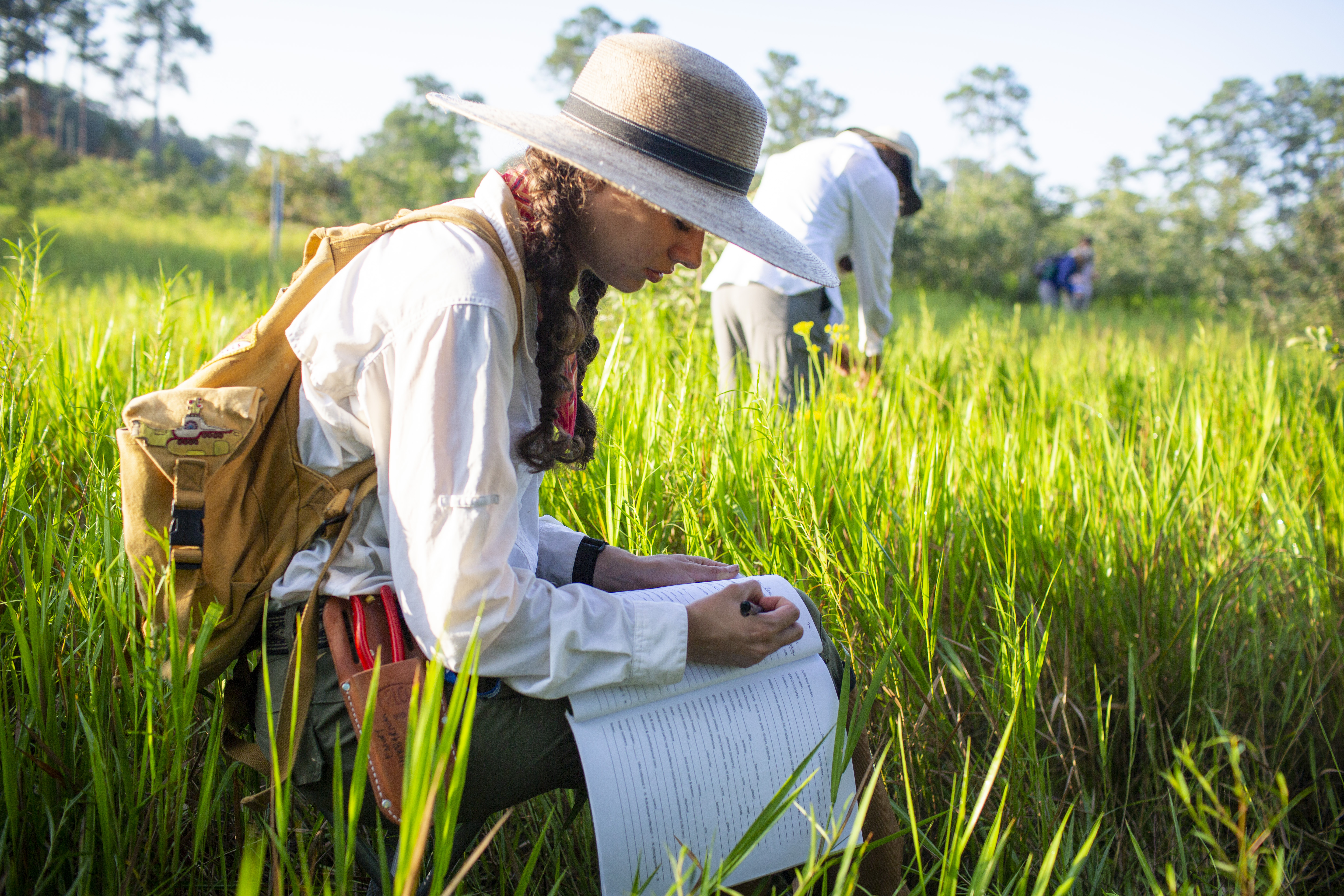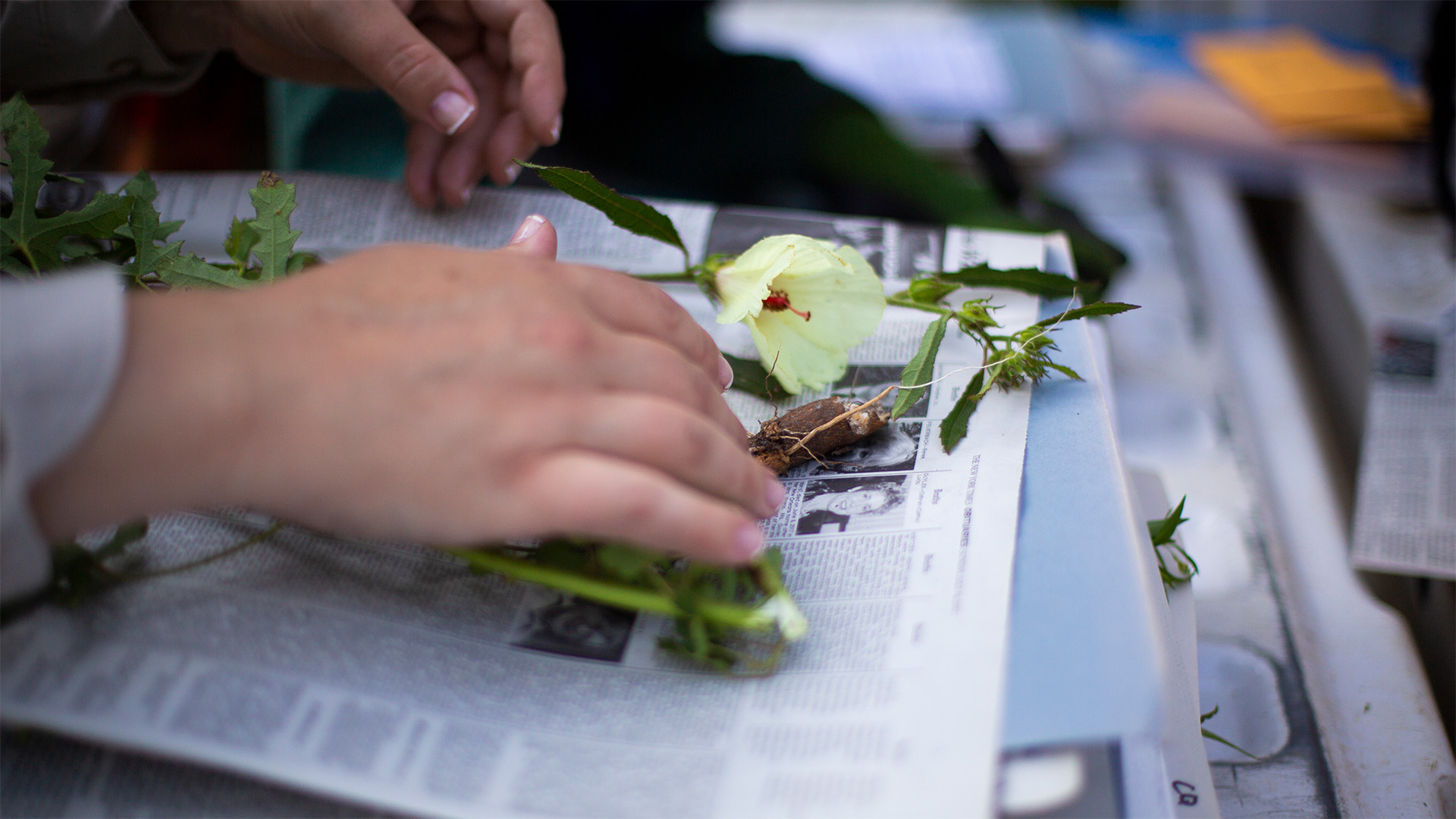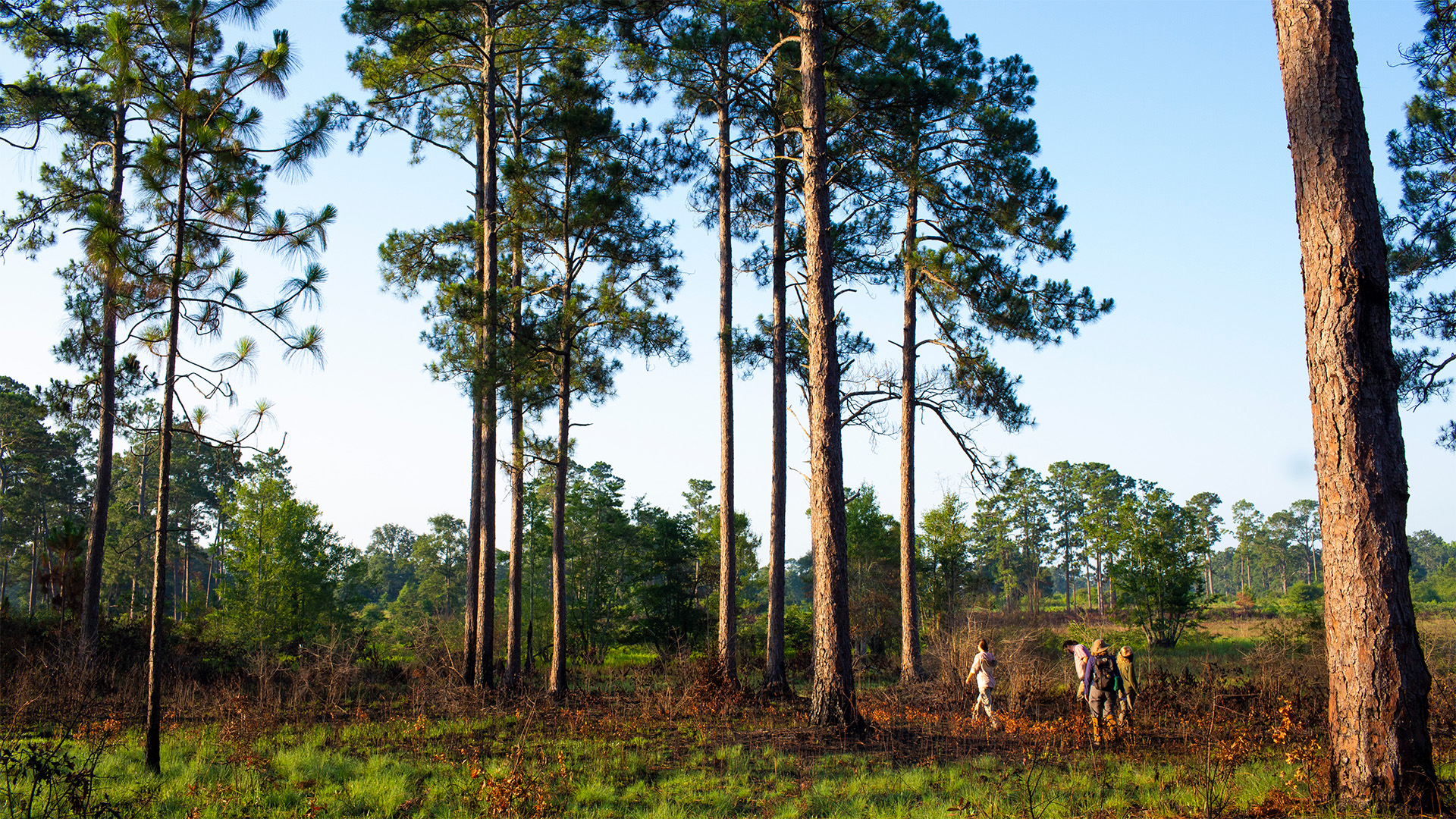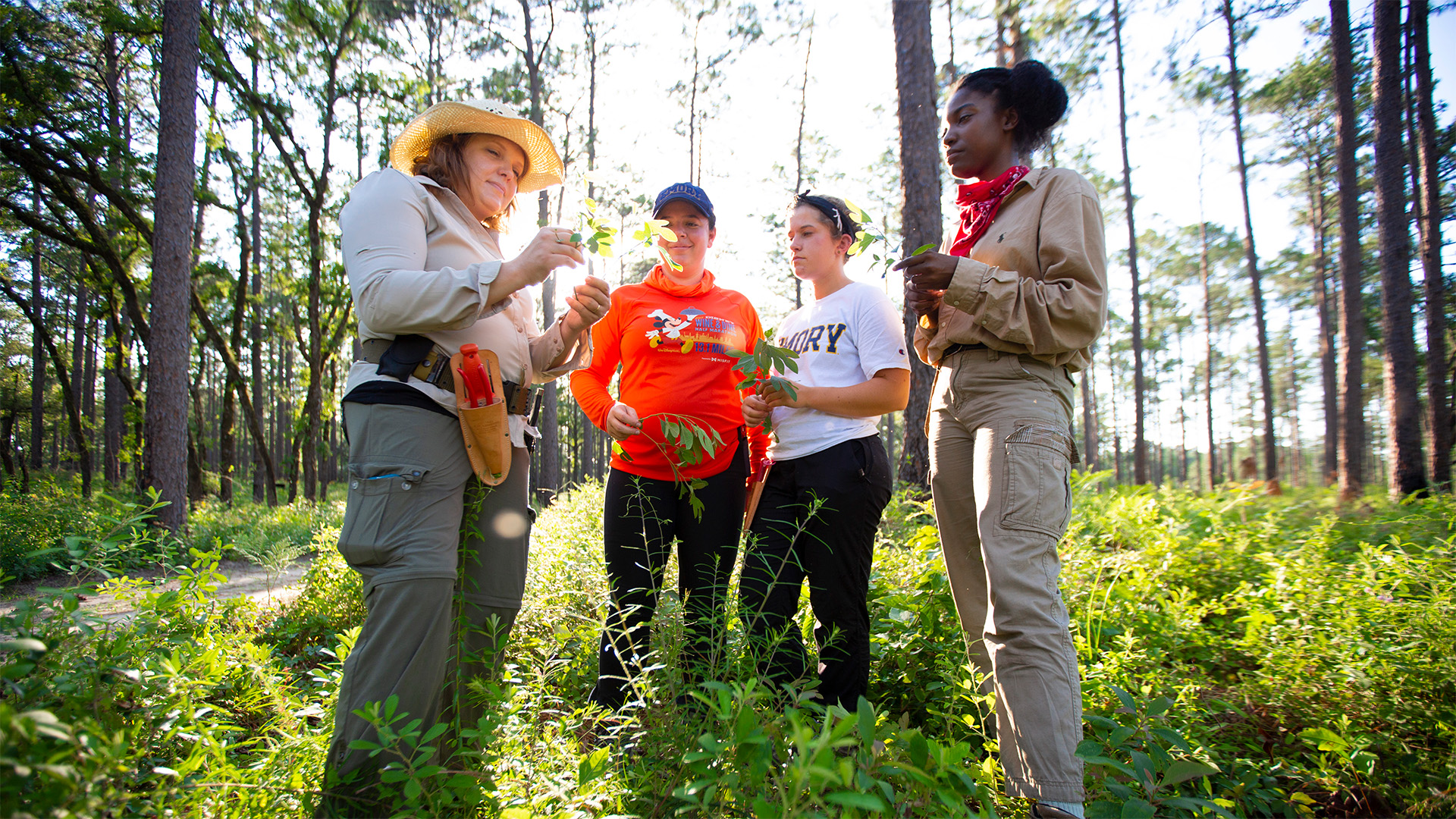Emory Herbarium (GEO)
A herbarium is a museum of preserved plant samples that are used for botanical research and education. Herbarium specimens may include pressed and mounted plants, plant parts (seeds, wood sections, pollen), microscope slides, plant DNA, and objects made from plants. At the Emory Herbarium, we believe in connecting people to plants, and in addition to our pressed herbarium specimens, we also curate ethnobotanical objects (e.g. blow guns, baskets, gourds, herbal medicines, musical instruments, etc.) that can help us to teach students and the public about the importance of plants in our lives.
Our Mission
The mission of the Emory University Herbarium (GEO) is to serve as a botanical research and educational resource for Emory University and the global community. GEO aims to foster understanding of the human-nature interface by collecting, preserving, researching, and exhibiting botanical specimens and ethnobotanical objects.

Our Vision
The Emory University Herbarium seeks to continue in the documentation and monitoring of: Plants used in research at Emory University and partner institutions; Medicinal plants to understand medical history and for drug discovery initiatives; Poisonous plants for physicians, pharmacists, and veterinarians; Wild food plants for research on food security and food sovereignty; Other plants of economic importance for use in educational outreach; and Endangered, threatened, and rare plants for Natural Heritage Programs.
View Us In The Index Herbariorum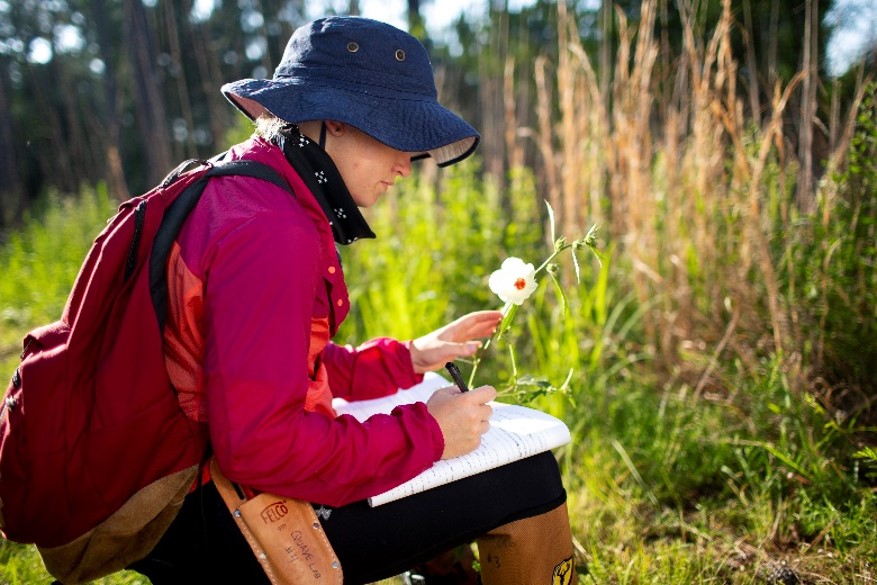
Our Collections
The Emory Herbarium is home to more than 24,000 specimens and a unique set of special collections, including vascular plants, bryophytes, lichens, and fungi collections from the state of Georgia and the world.
2,905
Don E. Eyles Collection
4,582
Robert F. Thorne Collection
806
S. Appalachian Botanical Collection
In The News
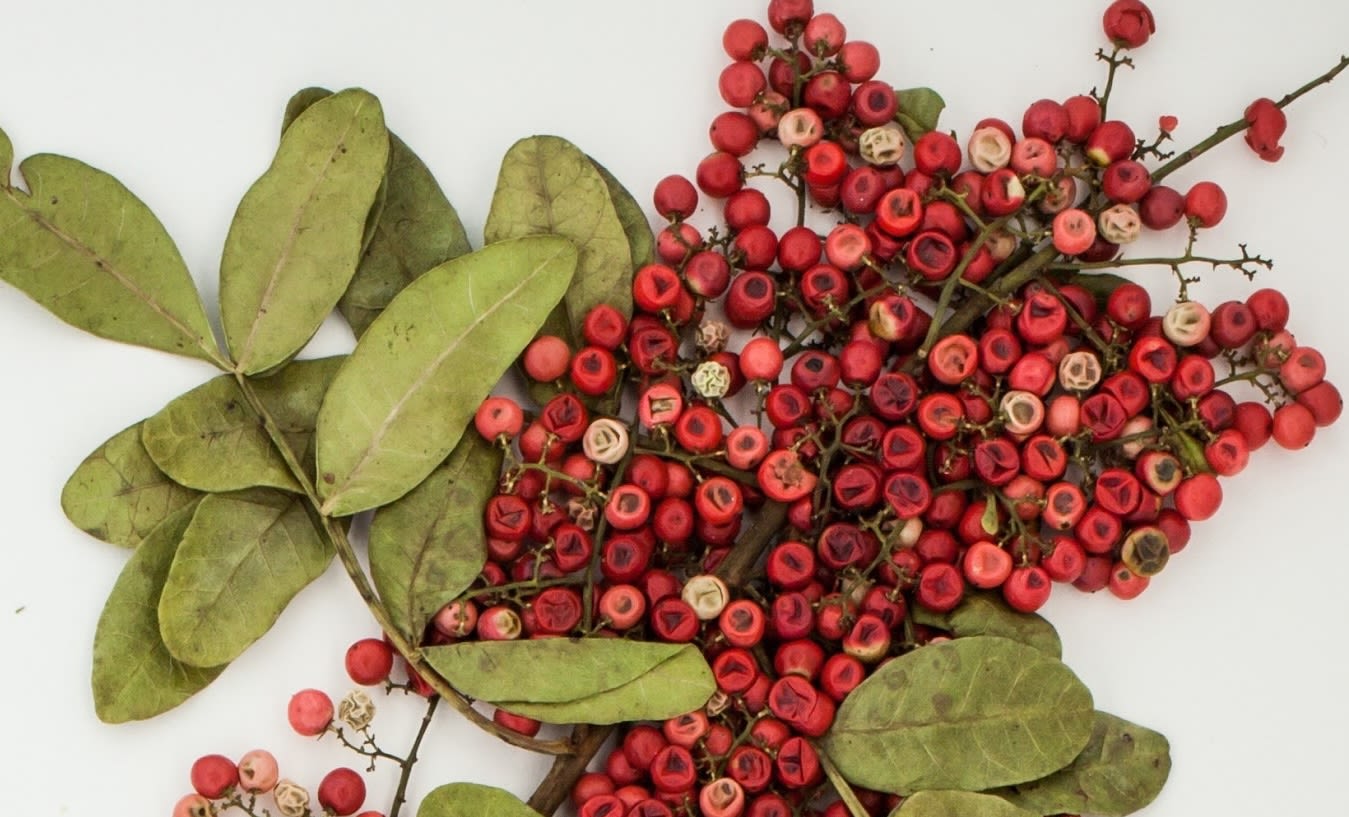
Plant extract inspires new chemistry and new early lead against triple-negative breast cancer
Emory ethnobotanist Cassandra Quave and colleagues found that an extract from the berries blocks antibiotic resistant bacteria from excreting toxins.
Read More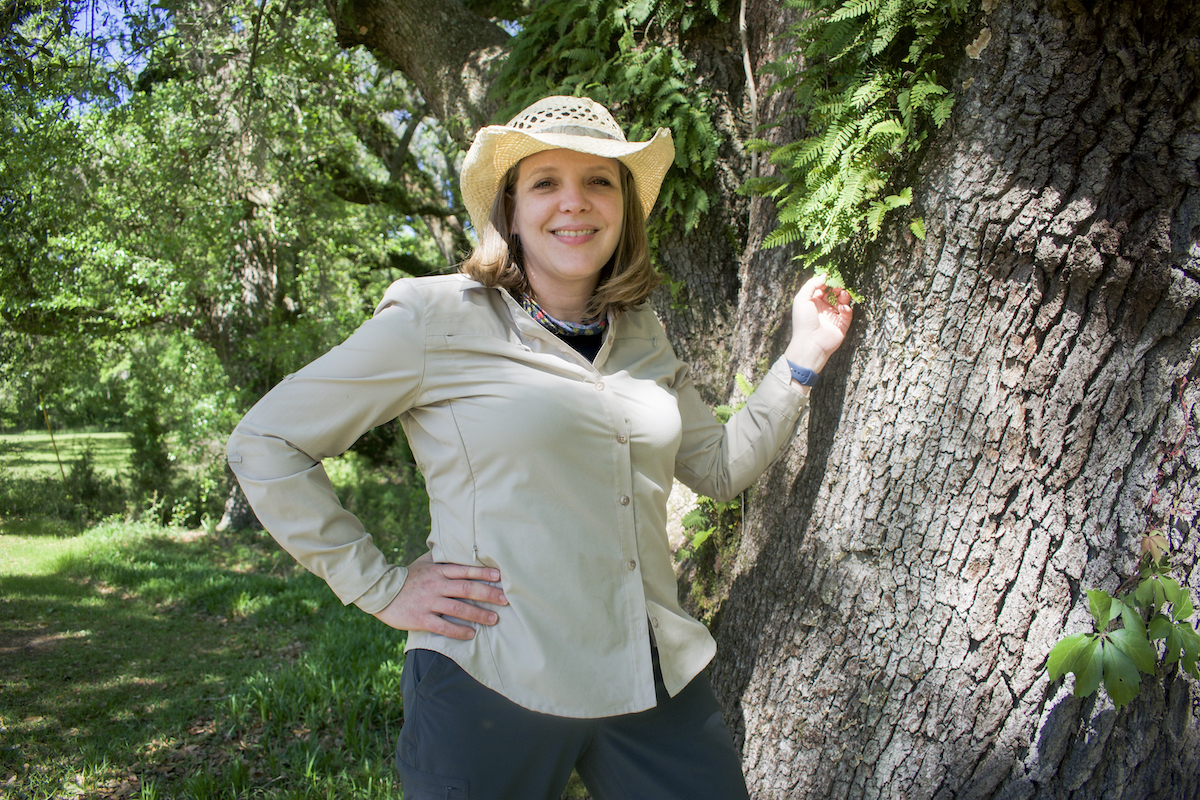
Ethnobotanist Cassandra Quave featured as CNN ‘Champion for Change’
The CNN primetime special features footage of Cassandra Quave and her students gathering plants in south Georgia and in her labs on the Emory campus.
Read More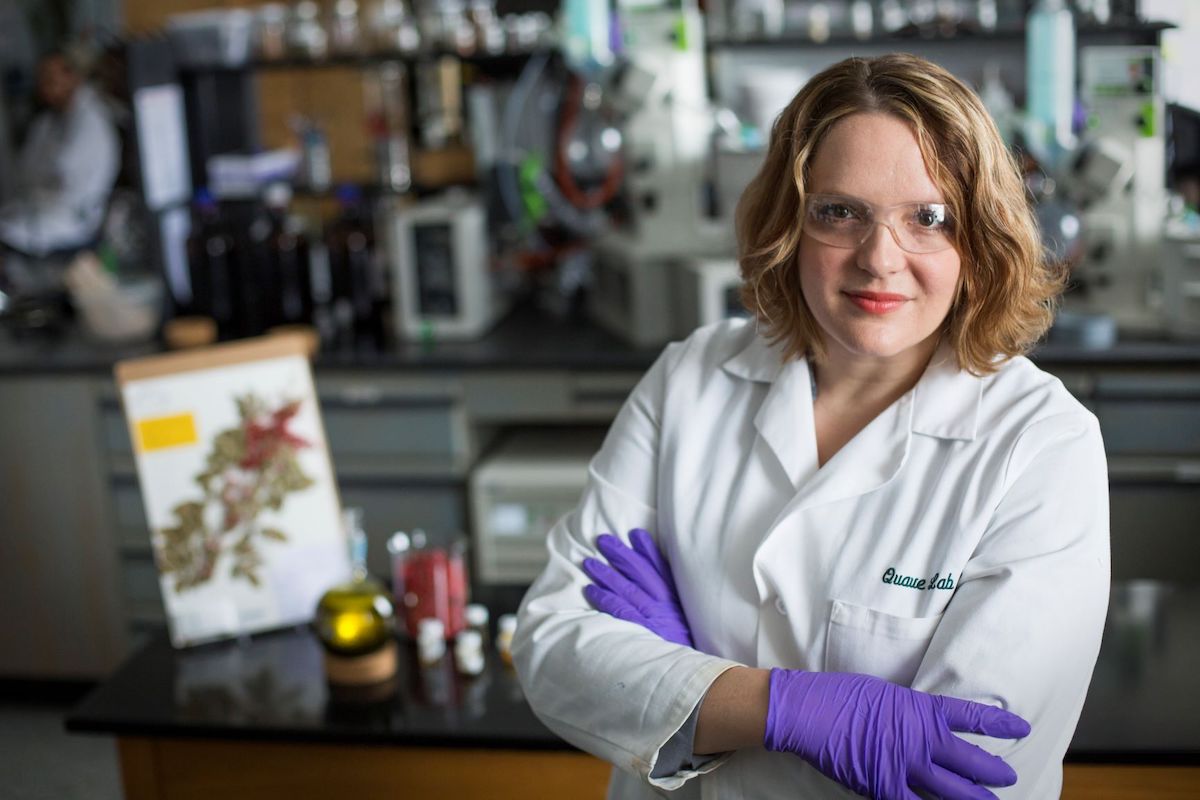
Emory ethnobotanist Cassandra Quave named Guggenheim Fellow
The John Simon Memorial Guggenheim Foundation has named Emory University ethnobotanist Cassandra Quave a 2024 Guggenheim Fellow.
Read More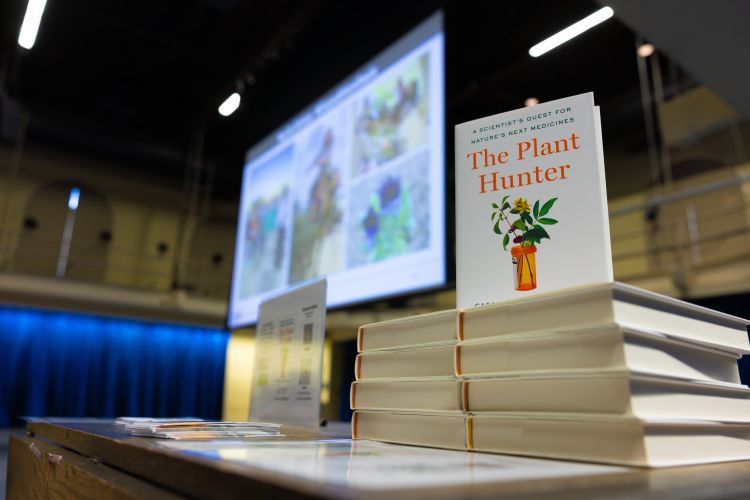
12 Big Ideas from Ideas Festival Emory
Cassandra Quave studies the healing power of plants and champions preserving the Earth’s biodiversity. Thanks to her work, the Emory Herbarium is one of the “biggest libraries of dead plants” in the Southern U.S.
Read More